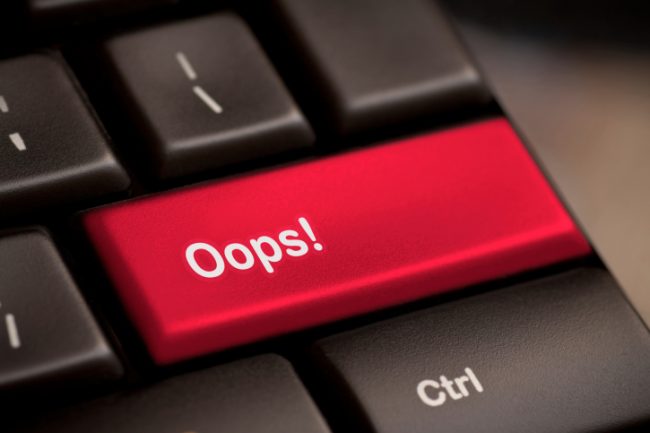No one is perfect. In the adversarial arena of litigation, attorneys are rarely willing to admit even having a weak legal argument, let alone an actual error. However, the American Bar Association recently issued an opinion which makes it an ethical duty for attorneys to disclose any material errors in representation to their clients.
The use of “material” in this opinion allows for a sliding spectrum which the ABA provides some general guidance in defining. A material error is defined as one that a “disinterested lawyer” would conclude is either “(a) reasonably likely to harm or prejudice a client, or (b) of such a nature that it would reasonably cause a client to consider terminating the representation even in the absence of harm or prejudice.” If feasible, attorneys are permitted to attempt to correct the error before disclosure, but absent correction, attorneys must immediately reveal the mistake.
The problems left open by this opinion are obvious. First, it leaves to the interested lawyer the job of being sufficiently self-critical to determine what the disinterested lawyer would do. This bleeds into the alternative basis for determining the need to disclose, as both “harm” and “prejudice” can be in the eye of the beholder. Has a client been prejudiced by evidence precluded by error if there are alternative arguments or facts that can be presented? If a novel or unusual argument is omitted on a dispositive motion that another party uses successfully, was that an exercise of judgment or a material error?
While the ABA’s expectations of objective self-analysis are optimistic, attorneys should remember that most states have anonymous hotlines for asking just these questions. In addition to allowing anonymity, these approved lawyers’ assistance programs are excepted from the general rule that attorneys must report misconduct. This allows attorneys to ask an actually disinterested lawyer for his opinion, and provide all the facts necessary for an objective analysis without fear of repercussions. The ABA’s recent ruling is a reminder that a retrospective decision-maker will in fact be disinterested, so it is in attorneys’ best interest to obtain that opinion before a professional malpractice or discipline action is filed.

